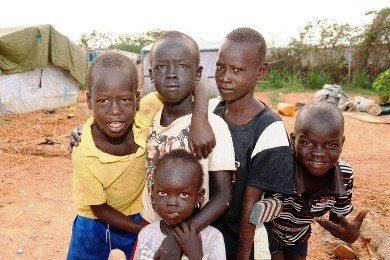One in four children in conflict zones out of school: UNICEF
January 13, 2016 (JUBA) – In 22 countries affected by conflict, nearly 24 million children living in crisis zones are out of school, the United Nations Children Fund (UNICEF) said.

“Children living in countries affected by conflict have lost their homes, family members, friends, safety, and routine. Now, unable to learn even the basic reading and writing skills, they are at risk of losing their futures and missing out on the opportunity to contribute to their economies and societies when they reach adulthood,” said UNICEF’s chief of education, Jo Bourne.
According to UNICEF, collecting data on children has also proved an uphill task owing to the conflict, thus impossible to obtain actual figures of those involved in the practice.
Meanwhile, UNICEF says it fears that unless the provision of education in emergencies is prioritised, a generation of children living in conflict will grow up without the skills they need to contribute to their countries and economies, exacerbating the already desperate situation for millions of children and their families.
Education continues to be one of the least funded sectors in humanitarian appeals.
In Uganda, where UNICEF is providing services to South Sudanese refugees, education faces an 89% funding gap.
“School equips children with the knowledge and skills they need to rebuild their communities once the conflict is over, and in the short-term it provides them with the stability and structure required to cope with the trauma they have experienced. Schools can also protect children from the trauma and physical dangers around them. When children are not in school, they are at an increased danger of abuse, exploitation and recruitment into armed groups,” said Jo Bourne.
During episodes of instability and violence, schools become more than a place of learning. UNICEF, however, said it was working to create safe environments where children can learn and play to restore normalcy to their lives.
Despite these efforts, security restrictions and funding shortfalls are affecting education and the distribution of learning materials in conflict situations.
(ST)
